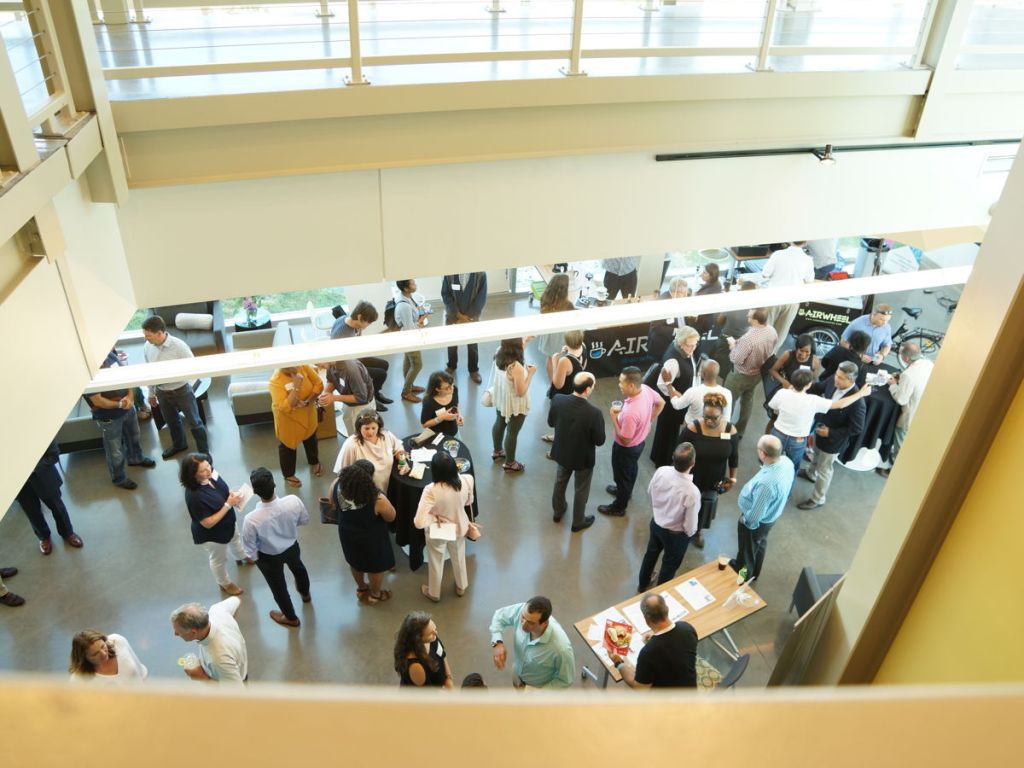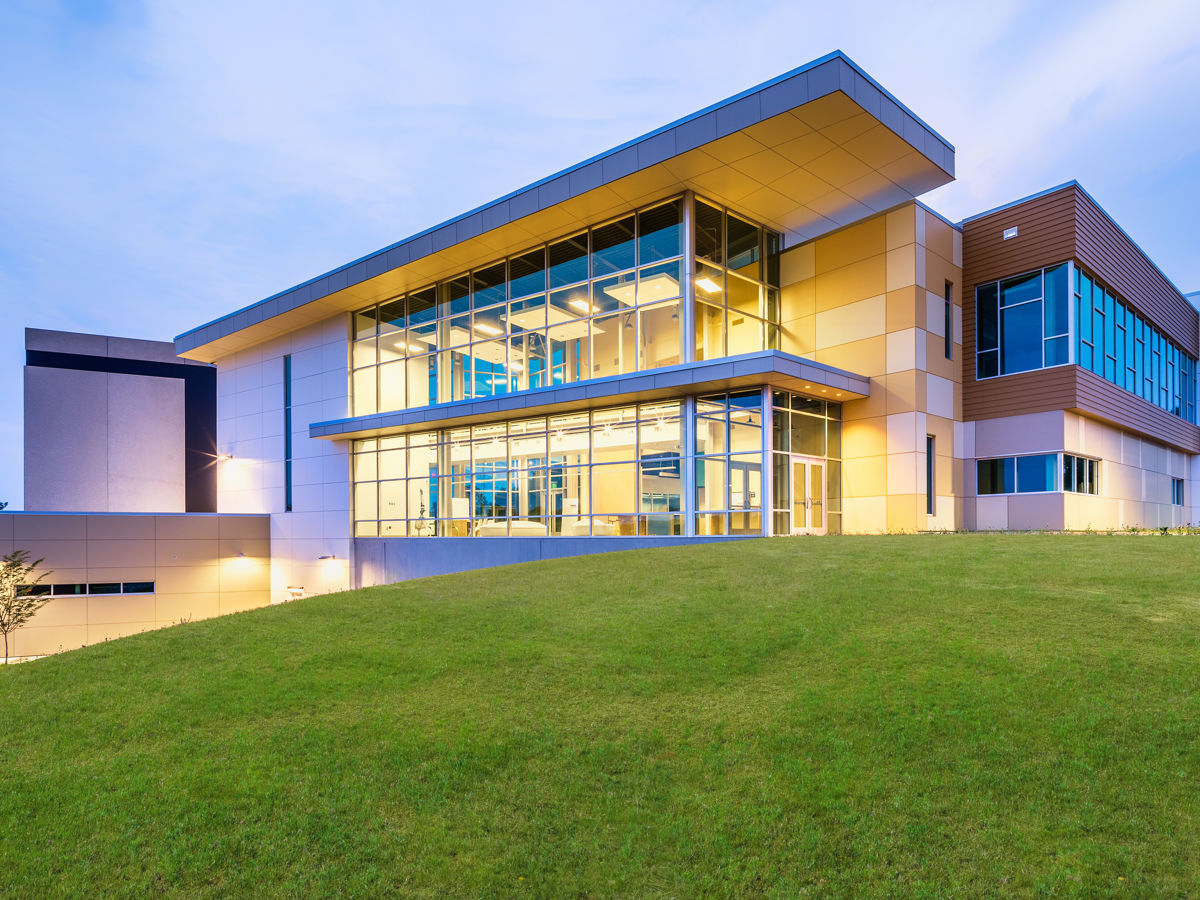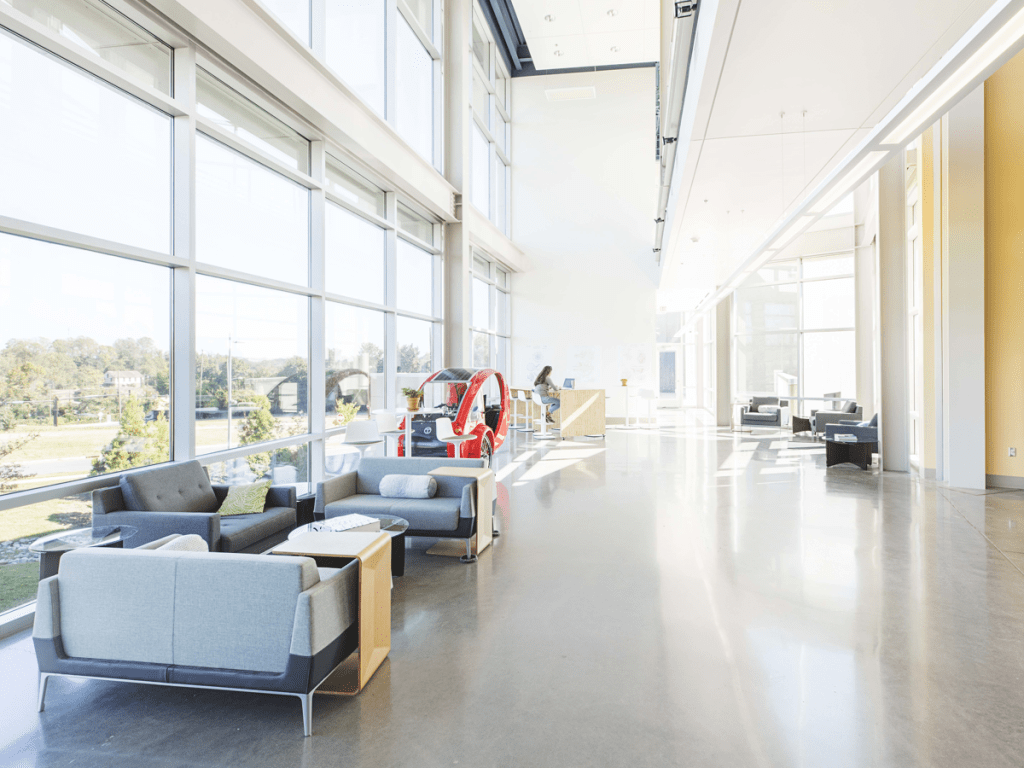What happens when top researchers, designers and dreamers dare to reach beyond their bubble? You get the kind of impactful energy that’s happening at the Center for Design Innovation (CDI).
To say there’s a lot in motion at CDI is an understatement. A multi-campus research center founded to generate knowledge across creative, disciplinary and institutional boundaries, CDI is indeed making positive impact through cooperative design. Here are five things to know about it.
1. CDI is an excellent example of both critical and creative collaboration.
Established in 2005 as a joint venture of founding partners Winston-Salem State University, UNC School of the Arts and Forsyth Technical Community College, CDI now nurtures both natural and more novel collaborations that build on each institution’s strengths.
It’s this spirit and diversity of exploration that makes the center distinct, says Jim DeCristo, the interim director for CDI as well as UNCSA’s vice chancellor for economic development and chief of staff. “Today, we have many continuing and episodic collaborators from all the universities and many important organizations in Winston-Salem. We work together on a wide variety of projects spanning education, health and wellness, entrepreneurship, virtual reality, and design.” Programming ranges from workshops and seminars to interdisciplinary classes and sustained research projects.

2. It’s got great digs.

Modern, flat-roofed and marked with a beige checkerboard exterior, the distinctive CDI campus was the first facility to open in the south end of the Innovation Quarter. Accessible from the Long Branch Trail and featuring soaring windows with scenic city views, the adaptable 24,000-square-foot space is part laboratory, part classroom and part meeting area.
It also features a signature 60 x 60 x 60-foot experimental space dubbed The Cube, where UNCSA School of Filmmaking’s Media and Emerging Technology Lab (METL) has recently taken up residency. “In The Cube, there is a state-of-the-art motion capture system that allows us to capture the motion of an actor, apply the motion to a digital avatar and place that avatar in a virtual world while you watch,” DeCristo explains.
3. CDI is home to four unique interdisciplinary design studios.
Under the CDI umbrella, four programs—called studios—merge shared interests with diverse skill sets to address challenges like equity, mobility, scientific literacy, education and environmental concerns.
- Information Design (infoDESIGN) Studio uses film, graphic arts, virtual and augmented reality, music, dance and animation to educate the public on the latest research.
- Health and Art Design (HeART) Studio merges health and arts to address total-body wellness across diverse communities.
- Spatial Justice Studio (SJS) explores solutions for creating and regenerating more equitable, functional and sustainable urban communities.
- And the Higher Education Design (HED) Studio fosters public knowledge and literacy through the high-impact process of research and design of performances, exhibitions, multimedia publications and more.
The studio directors—Nicholas Hristov, Melicia Whitt-Glover, Russell Smith and Betsy Towns, respectively—include a who’s who of visionary leadership.
4. CDI is also home to a hub of entrepreneurs.
In a merry merger of enterprise and innovation, Flywheel, a coworking space and entrepreneurial community, has been a CDI partner since moving into the building’s spacious second floor in January 2017.
Here, open and enclosed workspaces and meeting rooms are available for rent, while members can also enjoy other benefits like networking events and encouraging support staff.
5. You don’t have to be a student to engage with CDI.
Business, civic and education thought leaders agree: The Piedmont Triad’s future will be driven by the region’s Discovery Economy. By gathering this area’s bright minds and providing them with the tools to turn ideas into impact, these artists, designers, engineers and entrepreneurs can truly transform the state’s success.
Want to be a part of it? Visit cdiwsnc.org to find workshops, conferences and CDI events, as well as the Flywheel and METL webpages for additional opportunities.











